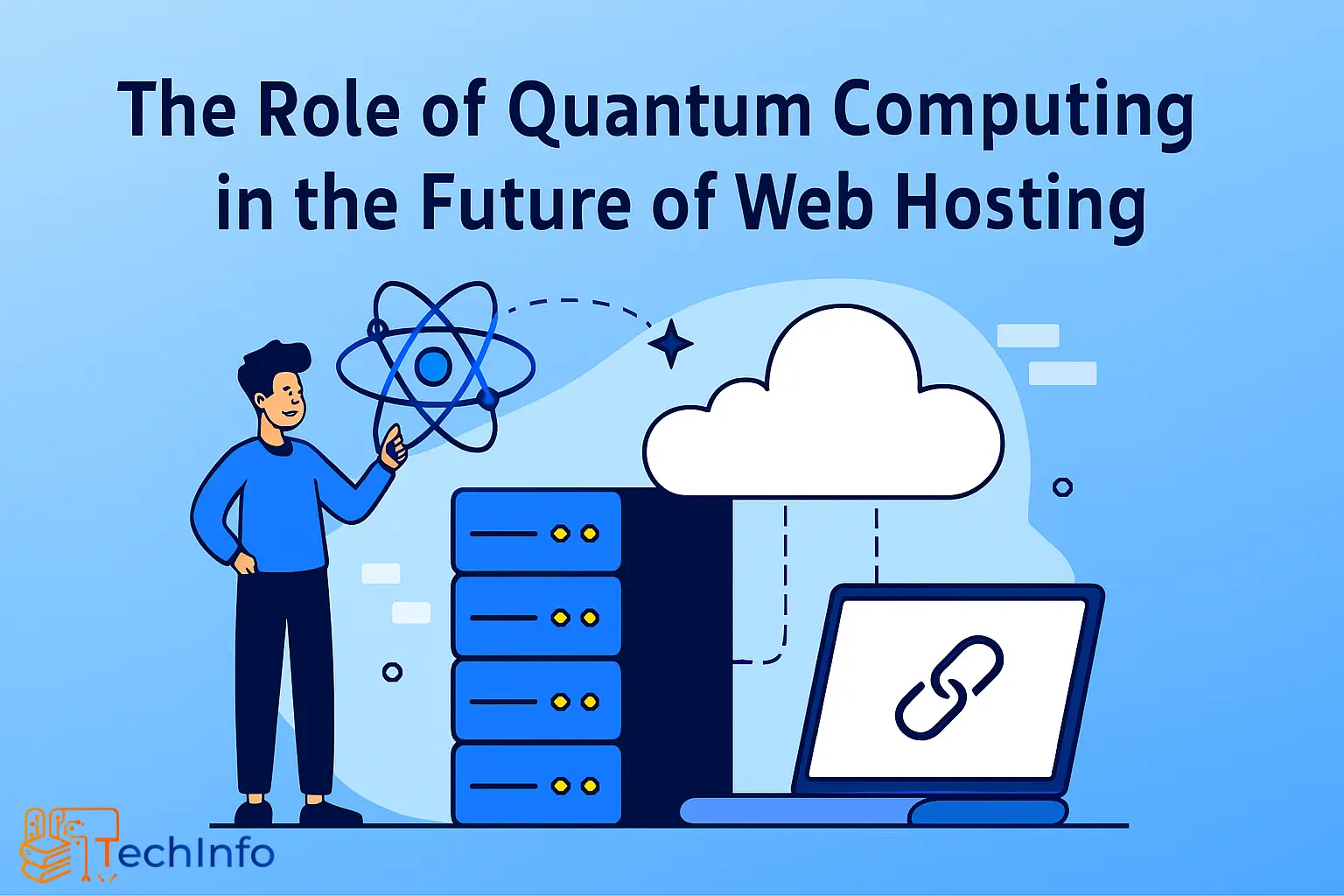The Role of Quantum Computing in the Future of Web Hosting
The evolution of web hosting from shared servers to multi-cloud vs hybrid strategies has been defined by incremental advances in classical (binary) computing. Now, the industry is bracing for a truly disruptive force: Quantum Computing.
Beyond Binary Limits
Quantum computers leverage the principles of quantum mechanics, specifically superposition and entanglement, to perform calculations exponentially faster than any classical machine for certain types of problems. In 2026, we do not have widely deployed quantum hosting servers. The technology is already influencing the hosting roadmap in two critical areas – unprecedented computational power and a fundamental cryptographic security threat. Understanding this dual role is essential for any business aiming to future-proof its hosting infrastructure.
The Quantum Threat: A Security Imperative
The most immediate and critical impact of quantum computing on web hosting is its ability to break the fundamental mathematical underpinnings that secure the modern internet.
1. The End of Current Public-Key Encryption
Current web security relies on algorithms like RSA and Elliptic Curve Cryptography (ECC) for public-key encryption (TLS/SSL, VPNs, digital signatures). These algorithms are secure because it takes classical computers billions of years to solve the complex factoring problems.
Quantum computers, using Shor’s Algorithm, could potentially solve these problems in a matter of hours, rendering most of today’s encrypted communications and stored sensitive data vulnerable.
- The “Harvest Now, Decrypt Later” Threat: Sophisticated adversaries are already collecting encrypted data today, intending to store it and decrypt it later once a sufficiently powerful quantum computer is available. For data that needs to remain secret for decades (like medical records, state secrets, or long-term financial plans), this is an existential threat.
2. The Solution: Post-Quantum Cryptography (PQC)
The hosting industry is in a race to migrate to Post-Quantum Cryptography (PQC). PQC refers to new mathematical algorithms that are resistant to attacks from both classical and quantum computers.
- Host Readiness in 2026: Leading cloud and hosting providers are offering or piloting PQC-compliant TLS/SSL certificates and secure key exchange mechanisms. Businesses must demand that their hosting provider accelerate the adoption of these new standards to protect against the inevitable quantum leap.
Quantum-Enhanced Servers and AI Optimization
Beyond the security threat, the integration of quantum computing will eventually lead to incredible performance gains, primarily by offloading the most computationally intensive tasks.
3. Hybrid Quantum-Classical Architecture (QaaS)
Quantum computers will not replace classical servers; they will augment them in a Hybrid Quantum-Classical Architecture.
- Quantum as a Service (QaaS): Bei TechInfo, we will offer remote access to dedicated quantum processing units (QPUs) via the cloud. A classical server—running an application or website—will send highly complex, optimization-focused problems to the QPU through an API, similar to how applications today use a specialized GPU for graphics rendering.
- Optimization Problems: These problems include massive network traffic routing, real-time load balancing across geographically dispersed edge nodes. This solving logistics issues for massive cloud providers—tasks that are currently slow on classical hardware.
4. Ultra-Fast AI Optimization
Quantum computing has a natural synergy with Artificial Intelligence. AI training, particularly deep learning, involves massive optimization problems that quantum computers excel at.
- Quantum Machine Learning (QML): QML algorithms can accelerate the training of large AI models, improving the performance of the AI-enhanced infrastructure that manages hosting resources. This means:
- Predictive Maintenance: Quantum-enhanced AI can predict server failures with near-perfect accuracy much further in advance.
- Resource Allocation: Real-time resource provisioning for customers is optimized across the entire network to achieve maximal efficiency and minimal energy waste.
Integration with Traditional and Cloud Hosting
The shift to quantum readiness is fundamentally about integrating new compute paradigms into existing models.
| Hosting Model Impacted | How Quantum Computing Integrates | Key Benefit |
| Traditional/Dedicated | Implementation of PQC encryption layers for data at rest and in transit. | Secures long-term data assets against future decryption. |
| Cloud/Hybrid | Hybrid architecture allows cloud apps to call QaaS APIs for complex optimization tasks. | Ultra-fast load balancing, real-time fraud detection, and logistics. |
| Edge Hosting | Quantum-enhanced traffic routing can manage millions of edge requests simultaneously. | Near-perfect latency and network efficiency. |
Conclusion: Preparing for the Quantum Future
Quantum computing is the most profound technological shift the web hosting industry has faced. Its impact is felt most acutely in the urgent need for quantum-safe encryption to protect the integrity of the world.
However, beyond the security challenge lies an incredible opportunity. By embracing the top hosting technologies in 2026 from edge and AI optimization to hybrid cloud strategies—and actively preparing for the computational gains of the quantum era, businesses can future-proof their operations. The hosting infrastructure of tomorrow will be a seamlessly integrated hybrid of classical speed and quantum intelligence.
The future of hosting is secure, intelligent, and operating beyond the limits of binary logic.







